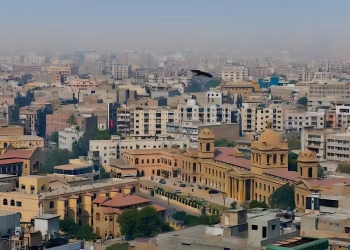ISLAMABAD: The World Bank has projected a slowdown in remittances to Pakistan and estimated it to drop to $24 billion in 2023 and a further drop below $22 billion with a 10 percent decline in 2024.
“Formal remittance flows plummeted by 20 per cent in 2023 on top of a decline of 5 per cent in 2022. Remittance flows in 2023 are expected to drop to $24 billion,” reads “Leveraging Diaspora Finances for Private Capital Mobilization” – a latest report published by the Washington-based institution.
It also talks about the currency devaluation effects, saying the rupee depreciated sharply between early 2022 and early 2023, and the government’s attempts to limit capital outflows through import and capital controls diverted remittance inflows from formal channels, contributing to shortages of foreign currency.
“In Pakistan, low expectations of a return of positive economic growth, as the IMF-supported program takes effect, are likely to weigh on public confidence,” the World Bank says of the outlook, adding that this might cause remittances to plummet by 10% and fall below $22 billion in 2024.
The report continues by talking about how this led to a growing illegal market in nations like Pakistan.
“Policies governing exchange rates and depreciation have encouraged migrants in Bangladesh, Pakistan, and Sri Lanka to transfer money through both formal and informal channels, taking advantage of black market premia.”
It further stated that Pakistan’s currency depreciated by 36 per cent against the dollar between January and September 2022, and 14 per cent against its trading partner currencies between January and July 2022. As inflation raged and a balance of payments crisis seemed imminent, the government sought financial assistance from the IMF to stabilise the exchange rate.
The bank further stated that loss of confidence contributed to migrants’ preference for the parallel exchange market and informal channels of money transfer, which further decreased official remittance flows to Pakistan.






























